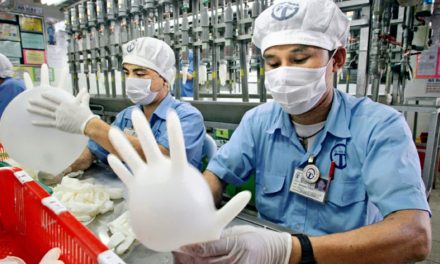KUALA LUMPUR | Sales and services roles were among the most vulnerable to being replaced with automation, said Khazanah Research Institute.
According to its “Work in an Evolving Malaysia: The State of Households 2020 Part II” report, workers in these categories represented the largest group in the Malaysian labour pool at 22.6 per cent of total employment in 2019).
“Conversely, jobs such as health and teaching professionals are less likely to be replaced by technology.
“While skilled occupations still face risk of automation, semi-skilled occupations are more liable of being automated,” the report said.
In the current Covid-19 climate, KRI found that the pandemic could also increase the risk of automation as firms try to cut costs and manage supply chain disruptions, as well as respond to potentially changing consumer preferences for automated services as physical distancing precautions continue.
“Even prior to Covid-19, jobs that can be automated tend to be semi-skilled and low skilled.
“These jobs also tend to have lower teleworking capabilities, ie workers cannot simply work from home when physical distancing requirements are enforced.
“If the movement restrictions have to be extended for a long period, we may risk the permanent loss of non-teleworking semi-skilled jobs,” said KRI.
However, while Covid-19 may accelerate some digitisation and automation, KRI found that it did not mean jobs will be immediately automated as businesses’ preparedness for automation was patchy.
“Industrial robots are still more concentrated in high-technology manufacturing activities, and even among firms in the sector, investments in machineries are still limited,” it said.
The research institute said the pandemic could provide a window of opportunity for policymakers to strategically manage the transition towards automation.
“On the firms’ side, this crisis is a clear evidence on why digitalisation and automation matters, further supported by various government incentives provided for firms to digitalise and automate.
“However, the transition process for these firms should also be supported by investments to improve workers’ skills so that they can operate the new technologies installed to improve productivity and business resilience,” said KRI.
KRI said it has become essential to ensure that workers complement technological advancements rather than simply being substituted by them.









